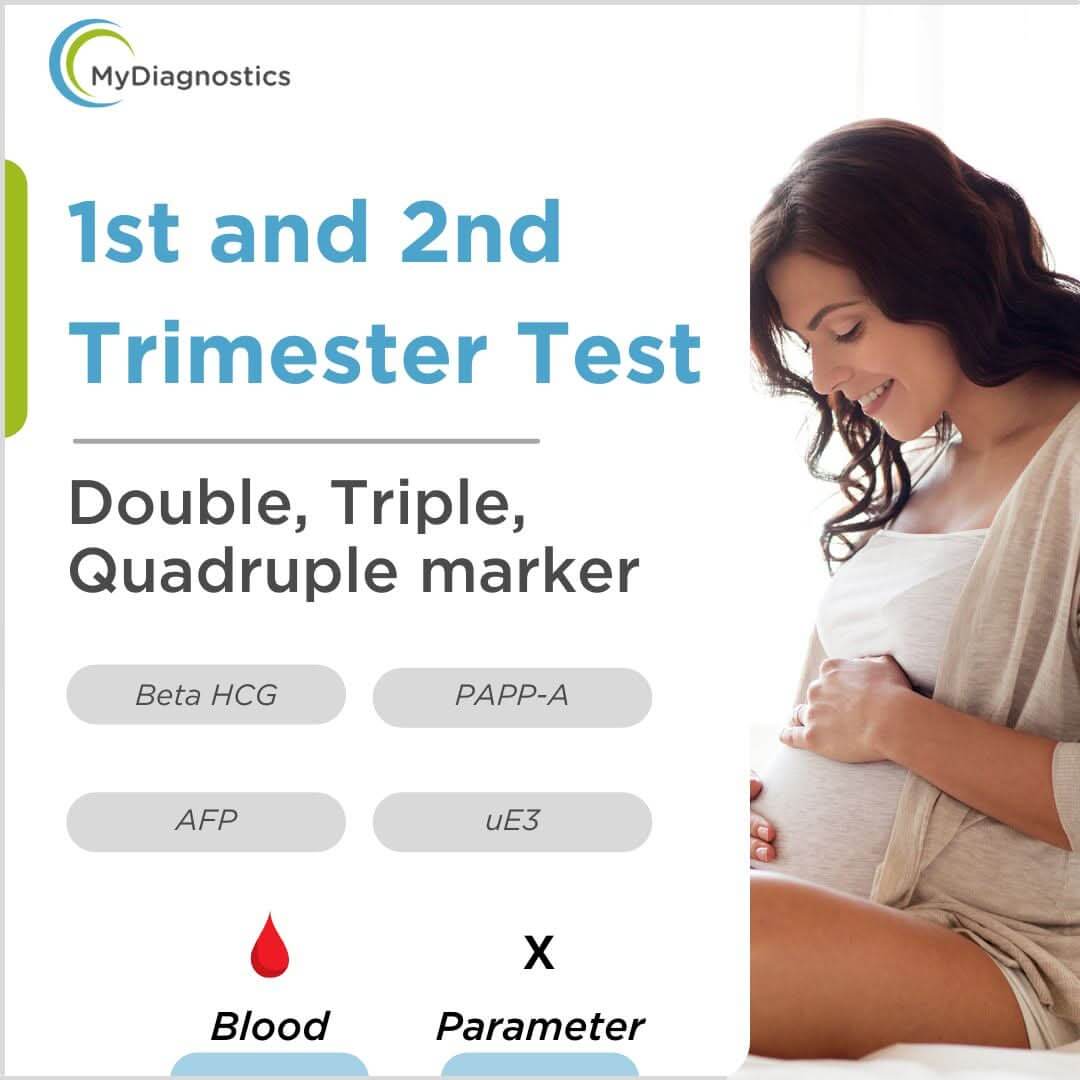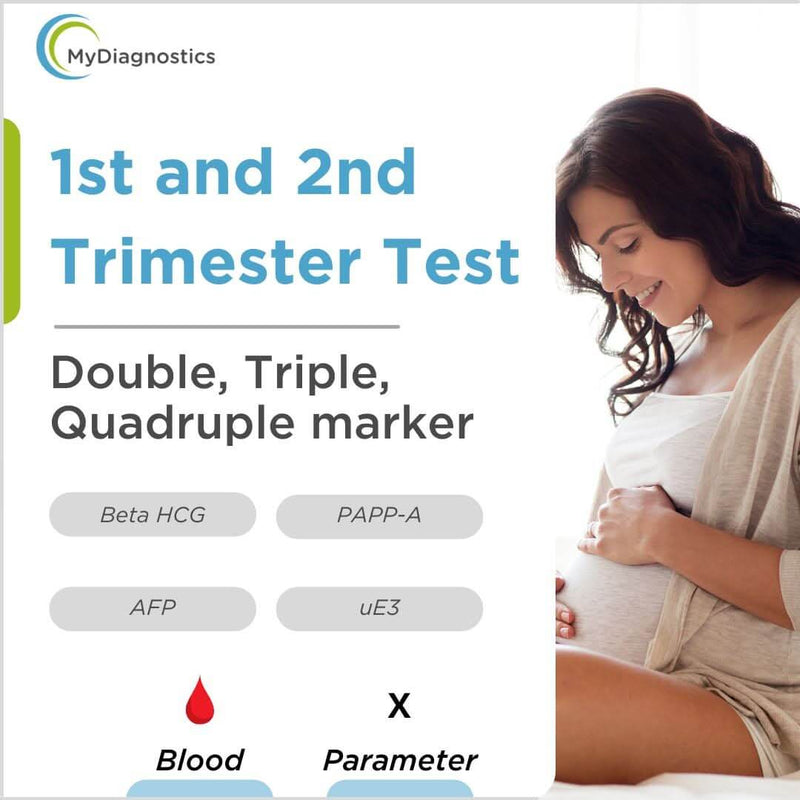Double, Triple & Quadruple Marker Test in Pregnancy – At Home
Test Parameters

About the First and Second Trimester Pregnancy Test - Double marker, Triple marker, Quadruple marker
Double marker test: A double marker test is a screening test that is used to assess the risk of certain chromosomal disorders, including common chromosomal abnormality, and the double marker test results for birth defects. in a developing fetus. The double marker test is typically performed during the first trimester of pregnancy, and it measures the levels of two specific proteins in the mother's blood: human chorionic gonadotropin (hCG) and pregnancy-associated plasma protein A (PAPP-A). The levels of hCG and PAPP-A can be used to estimate the risk of certain chromosomal abnormalities, such as down syndrome, and trisomy 13, and trisomy 18. trisomy 13, and trisomy 18.
Triple marker test: A triple marker test is a screening tool that detects chromosomal abnormalities and birth defects in a developing fetus. The test is typically performed during the second trimester of pregnancy for early detection , and it measures the levels of three specific substances in the mother's blood, aiding in the detection of neural tube defects : alpha-fetoprotein (AFP), human chorionic gonadotropin (hCG), and unconjugated estriol (uE3). The levels of AFP, hCG, and uE3 can be used to estimate the risk of certain chromosomal abnormalities
Quadruple marker test: A quadruple marker test is a screening test that is used to assess the risk of chromosomal abnormalities and genetic disorders, including birth defects. in a developing fetus. The test is typically performed during the second trimester of pregnancy, and it measures the levels of four specific substances in the mother's blood: alpha-fetoprotein (AFP), human chorionic gonadotropin (hCG), unconjugated estriol (uE3), and inhibin A. The levels of AFP, hCG, uE3, and inhibin A can be used to estimate the risk of certain chromosomal abnormalities, including severe chromosomal disorders, which are critical for prenatal planning .
Accuracy and Results of Test
The results of a double/Triple/Quadruple marker test are typically reported as a risk ratio, which compares the level of the markers in the mother's blood to the levels typically seen in a normal pregnancy. If the risk ratio is higher than expected, it may indicate an increased high risk of a chromosomal abnormality or associated risks related to birth defects, leading to additional diagnostic tests. If the risk ratio is lower than expected, it may indicate a decreased risk of a chromosomal abnormality or birth defect, emphasizing the importance of early screening for risk assessment.
How is Double, Triple, Quadruple marker test performed
- Blood Sample collection require in special tube 10 ml & by Prior appointment.
- We Required filled Test Requisition Form or prescription
Is Double, Triple, Quadruple marker test recommended for all pregnant women?
Recommends that all pregnant women be offered screening for chromosomal abnormalities like down syndrome, regardless of their age or risk factors. However, the double marker test is typically recommended for women who are at an increased risk of having a baby with a chromosomal abnormality and may need further diagnostic tests, such as further testing based on the findings from the double marker test.
- Women who are 35 years of age or older at the time of delivery
- Women with a personal or family history of chromosomal abnormalities
- Women who have had a previous pregnancy with a chromosomal abnormality
- Women with certain medical conditions, such as diabetes or epilepsy
It is important to discuss the double marker test results interpretation, benefits, and limitations of the double marker test with a healthcare provider., especially for early medical intervention, to determine if the double marker test, a simple blood test, is right for you after discussing the double marker test procedure with your healthcare provider .
About the Quality
Quality assurance is done at 3 levels
- Sample collection from home using one time sealed QR coded sterile kits and transportation to the lab including the temperature condition requirements
- Sample acceptance and QC at the lab
- Sample run at the NABL/CAP/ISO certified labs - Metropolis






